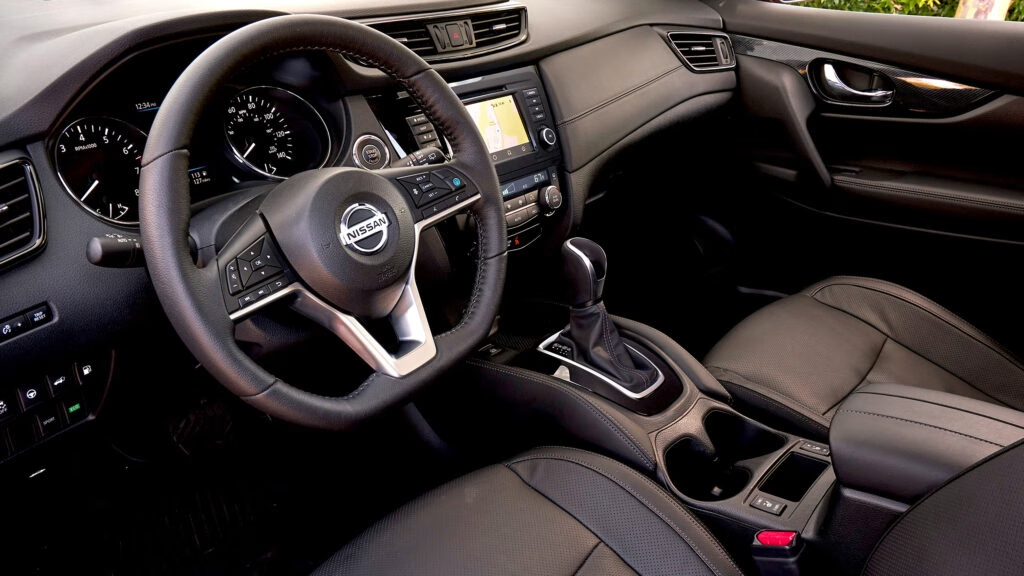Nissan is currently facing a class action lawsuit that raises serious concerns about the safety of several of its popular vehicle models, including the Nissan Rogue, Altima, and Sentra. The crux of the issue revolves around defective door lock actuators, which can lead to doors unexpectedly opening while driving or, conversely, failing to open at all. This situation has left many drivers feeling vulnerable and questioning the reliability of their vehicles.
What’s the Problem with Nissan’s Door Lock Actuators?
The lawsuit, initiated by Deena Khalifa, highlights a significant oversight by Nissan. Khalifa claims that had she been informed about the potential defect in the door lock actuators before purchasing her 2020 Rogue, she would have opted for a different vehicle. This sentiment resonates with many consumers who feel blindsided by issues that could have been disclosed upfront.
The door lock actuators are crucial components that control the locking and unlocking of vehicle doors. When these actuators malfunction, they can pose serious risks. Imagine driving down the highway and suddenly finding your door flinging open. It’s not just a minor inconvenience; it’s a potential hazard for both the driver and passengers. Reports have surfaced of individuals being locked out of their vehicles during emergencies, which is an alarming scenario that underscores the severity of this defect.
A History of Complaints
Nissan’s troubles with door lock actuators aren’t new. The company issued a recall back in July 2015 for certain models due to similar issues, but the recall was limited to just over 6,500 vehicles. Since then, numerous complaints have been filed with the National Highway Traffic Safety Administration (NHTSA), with customers detailing their harrowing experiences. One particularly distressing account involved a woman who was unable to enter her vehicle while being pursued by a suspicious individual due to a malfunctioning door lock. In another case, a mother had to break a window to rescue her child trapped inside a vehicle with non-functioning locks.
The lawsuit claims that Nissan has not only failed to adequately address these issues but has also violated California’s Consumers Legal Remedies Act and Unfair Competition Law. Khalifa is seeking a jury trial, hoping to hold Nissan accountable for what she and many others see as a serious breach of consumer trust.
What Does This Mean for Current Nissan Owners?
For current Nissan owners, especially those with models from 2013 to 2025, this lawsuit raises critical questions about vehicle safety and manufacturer transparency. If you own a Nissan Rogue, Altima, or Sentra, it’s essential to stay informed about any developments related to this case. Monitoring updates from Nissan and the NHTSA can provide clarity on whether your vehicle is affected and what steps you might need to take.
Additionally, it’s a good idea to check for any recalls or service bulletins related to your vehicle. While recalls can be inconvenient, they are crucial for ensuring your safety on the road. If you experience any issues with your door locks or have concerns about their functionality, don’t hesitate to reach out to your local dealership for assistance.
The Bigger Picture
This lawsuit is more than just a legal battle; it’s a reflection of a broader issue within the automotive industry regarding transparency and consumer safety. As vehicles become increasingly complex, manufacturers must prioritize clear communication about potential defects. Consumers deserve to know what they’re buying and the risks associated with their vehicles.
In the end, the big takeaway? This situation isn’t just about Nissan; it’s about the importance of accountability in the automotive industry. If you’re in the market for a vehicle, don’t hesitate to ask questions and do your research. A little diligence can go a long way in ensuring your safety and satisfaction on the road. Remember, it’s not about perfection—it’s about making informed choices. Start with one change this week, and you’ll likely spot the difference by month’s end.

